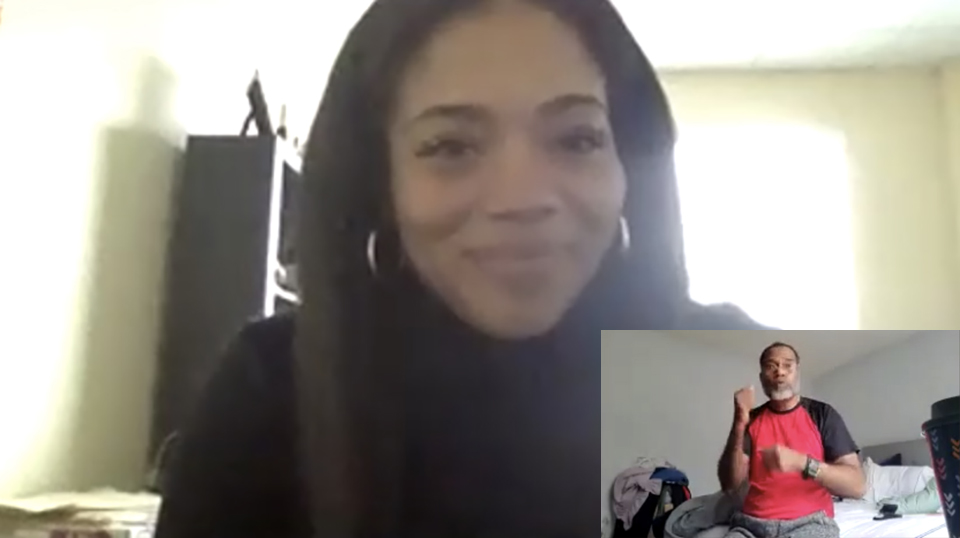Bradley and Ivy

PROGRAM: HOPE HOUSE, DEAF-CENTERED (DHH) PROGRAM
As a person who has been deaf since the age of 3, Bradley often struggled to find his way in a hearing world. After battling addiction and attempting recovery off and on for years, Bradley finally discovered the support he needed through the CaringWorks deaf-centered community at Hope House. And it all began with a call from his daughter, Ivy.
“Being the oldest child of deaf parents, you’re always placed in the position to be protective over them,” says Ivy. “So, when my dad became homeless, that instinct automatically kicked in and I was determined to do whatever I could to help him. I know this has been a long journey for him, over 20 years, and I wanted to find a place that could provide him the support that he needed, a program that catered to people who are deaf.”
Through a google search for treatment programs for the deaf, Ivy found Hope House which has the only Deaf or Hard of Hearing (DHH) homeless treatment program in the Southeast. The program includes residential treatment and recovery services for homeless DHH adults. DHH staff members at Hope House are fluent in American Sign Language, competent in Deaf Culture, and trained in evidenced-based practices.
As one of only three comparable programs in the United States, Bradley says the DHH program is so different from other treatment programs he has tried. “In Chicago [and other treatment programs], they don’t have integrated meetings where you have deaf and hearing, where you have an interpreter there,” says Bradley. “After a month or two, it’s kind of rough. You go to the interpreted meetings, but sometimes there is no interpreter there and they just tell you to wait. So of course, I relapsed. I relapsed over and over again.”
“Hope House was completely different. At Hope House, you can ask questions. The interpreters are available. You can interact. I thought I would be there for six months, and then ended up staying for two years. Two years was better for me to stay clean, and that’s what I wanted.”
The personalized support that the Hope House team provides has also been key to his recovery. “I had a lot of help,” says Bradley. “If I needed to go to the probation officer, or to a doctor at Mercy Care to get medication, or needed to get something for my bedroom, even if I needed to get tissues, they were there. They would make sure that I got my medicine and I started to feel much better once I stuck with my medicine.”
Since successfully completing the 2-year program, the Hope House team has helped Bradley find a job and a place of his own, which has brought him a new sense of peace. “I feel relaxed,” says Bradley. “I feel so calm and loved and…happy? Yes, I would say happy is the word.”
And perhaps the best thing of all is the restoration of the father/daughter relationship that Ivy has yearned for, for so long. “After the transition from Hope House, I definitely can see the change in my dad and his will to live,” say Ivy. “We were just having a conversation last night, and it was really eye-opening some of the things that he was going through that I didn’t know about and his journey to sobriety and the things that he was feeling. I can just see all the progress in him, and that he’s happy, and he is really enjoying living and not being too high to enjoy life.”
“We want to have a relationship, and I’ve missed that bond that we did share. So, getting that back has been the best thing ever. I am just so grateful for Hope House and Caring Works. I can’t even put into words everything that they have given our family.”
